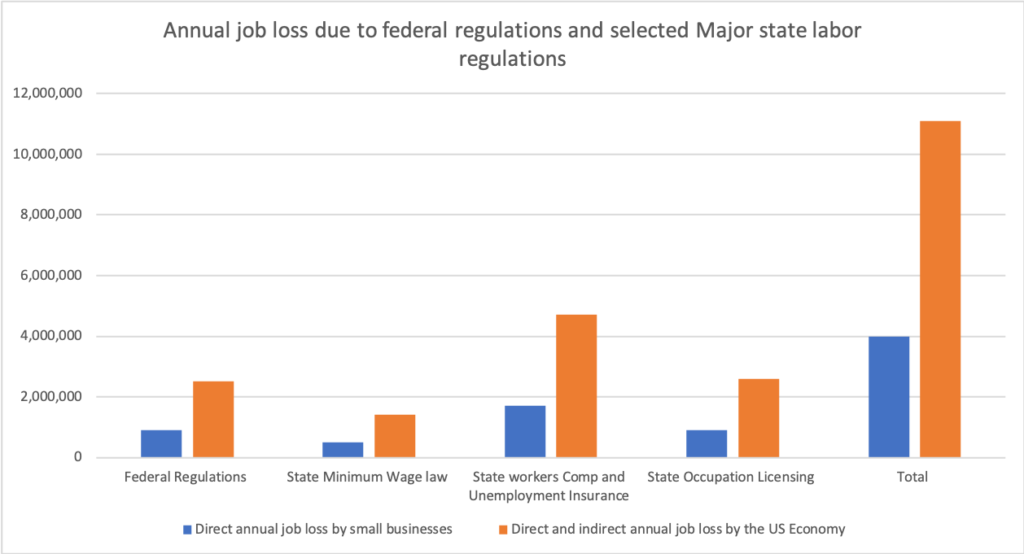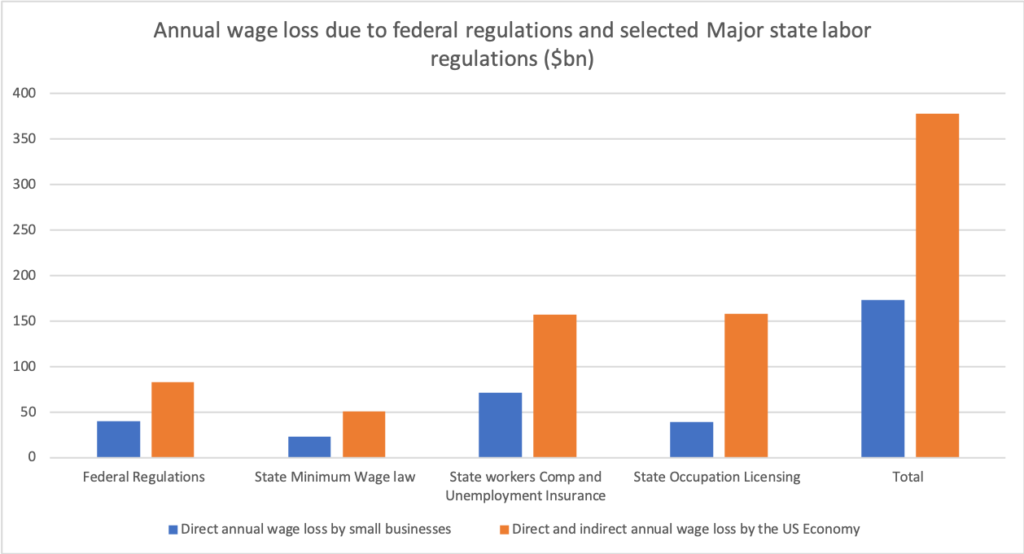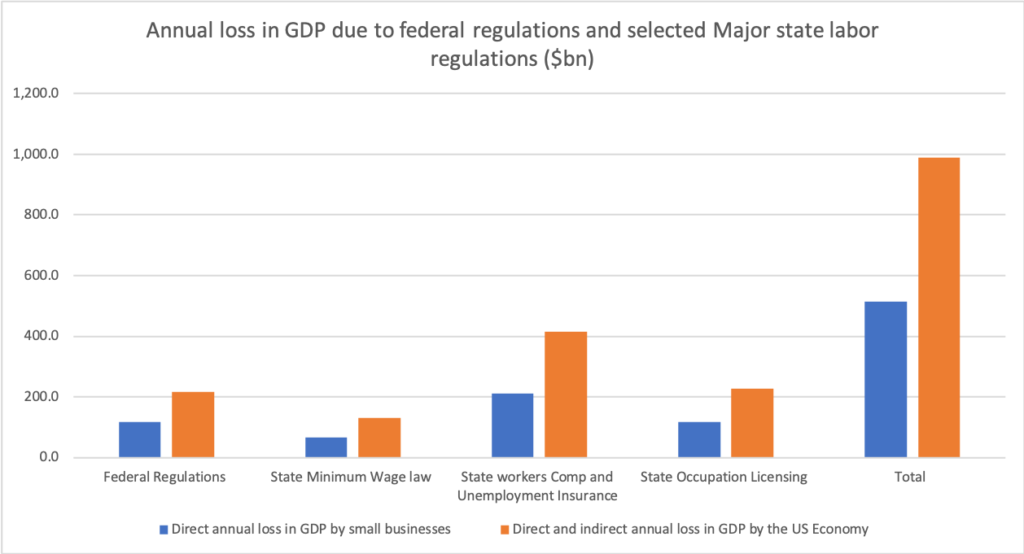Regulatory costs disproportionately affect small businesses
Businesses do generally operate under certain guidelines, termed regulations. These regulations act as guiding constraints on what businesses can and cannot do. The end goal of regulations is usually to ensure safety — of individuals or businesses. But regulations come with a negative side; they increase costs through compliance activities.
And unfortunately, these costs do not fall on all businesses the same. Start-ups and small businesses tend to get the short end of the stick when it comes to regulations.
Whis is this the case? Big and old businesses are usually in better financial status to withstand the rising costs that come with regulations. Small businesses, on the other hand, often operate on a close to negative cash flow. Any increase in costs can impact them significantly. Moreover, big businesses usually have systems set up to navigate complex regulations. For small and new businesses, hiring lawyers to navigate the regulatory system is more costly.
A recent NBER working paper has documented this phenomenon by looking at how regulations affect the cost of capital. According to the study, regulations reduce sales growth and increase firms’ cost of capital by a significant amount. And as mentioned, large firms are usually in a better position to manage those costs, so smaller businesses are much more impacted by regulation.
We find that higher regulatory cost results in slower sales growth, an effect which is mitigated for large firms. Furthermore, we find a one-standard deviation increase in our preferred measure of regulatory cost is associated with an increase in firms’ cost of capital of close to 3% per year. These findings suggest that regulatory risk is a major cost to firms, but the largest firms are able to manage that risk better.
This has far-reaching impacts on the economy. Small businesses make up the majority of businesses and they account for the majority of job creation. And because regulations prevent small firms from growing and, sometimes, surviving, the economy is affected. Regulation — especially when it is too excessive — effectively stalls job creation, stagnates income growth, and reduces wealth creation.
According to the US Chamber of Commerce Foundation, for example, Federal regulations alone contribute to a loss of over 2 million jobs, both directly and indirectly. The same is true for state occupational licensing laws.
Regulatory burden causes job loss

Source: US Chamber of Commerce Foundation
Regulatory burden causes wage loss

Source: US Chamber of Commerce Foundation
Regulatory burden causes loss in GDP

Source: US Chamber of Commerce Foundation
Certainly, safety is important, but lawmakers need to be conscious of the cost they impose on small businesses and the economy when they enact burdensome regulations.